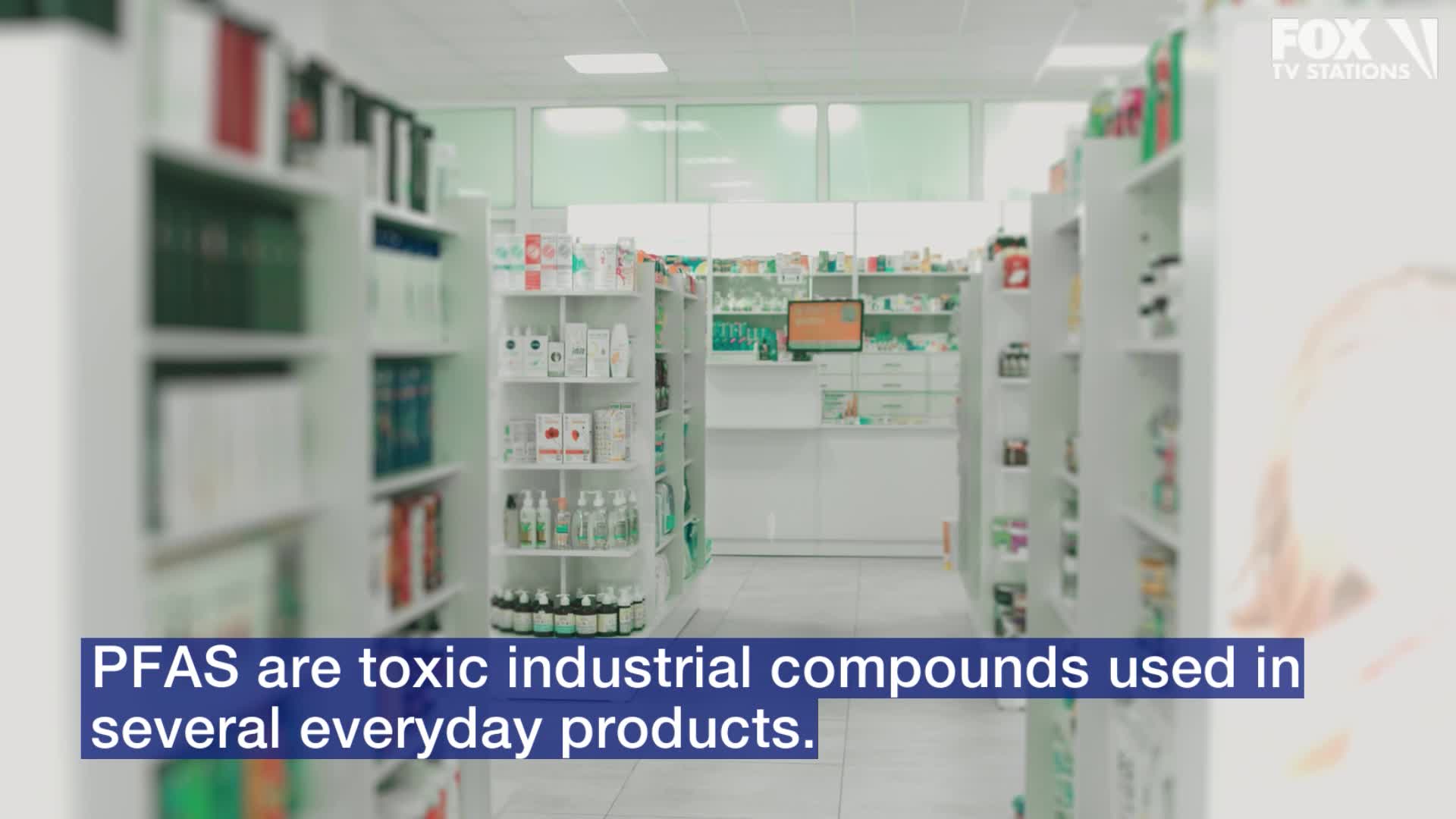3M to stop making hazardous ‘forever chemicals’ starting in 2025

What are PFAS, the concerning 'forever chemicals?'
PFAS are increasingly being found unnaturally in water sources, food, and animals.
3M has announced plans to stop making PFAS known as "forever chemicals" by the end of 2025.
In a release Tuesday, the company said it will stop manufacturing all "fluoropolymers, fluorinated fluids, and PFAS-based additive products." 3M, which manufactures thousands of products, including scotch tape, said they have already reduced its use of PFAS over the past three years.
The Minnesota-based company noted their decision was "based on careful consideration and a thorough evaluation of the evolving external landscape, including factors "focused on reducing or eliminating the presence of PFAS in the environment."
RELATED: Toxic 'forever chemicals' detected in half of US makeup, study finds
PFAS, are called "forever chemicals" because they last so long in the environment, and are used in thousands of everyday household items, such as certain shampoos, dental floss, cosmetics, non-stick cookware, food packaging, stain-resistant coatings for carpeting, upholstery, and clothing, according to the U.S. Environmental Protection Agency.
"This is a moment that demands the kind of innovation 3M is known for," Mike Roman, 3M chairman and chief executive officer, said in a statement. "While PFAS can be safely made and used, we also see an opportunity to lead in a rapidly evolving external regulatory and business landscape to make the greatest impact for those we serve. This action is another example of how we are positioning 3M for continued sustainable growth by optimizing our portfolio, innovating for our customers, and delivering long-term value for our shareholders."
3M stated that it expects to take a financial loss of $1.3 billion to $2.3 billion over the next couple of years by halting its use of PFAS, according to the release.
RELATED: 'Forever chemicals' linked to high blood pressure risk in middle-aged women, study finds

Maplewood, Minnesota, 3M company global headquarters. 3M produces the N95 respirator masks for the coronavirus. (Michael Siluk/Education Images/Universal Images Group via Getty Images)
Public health studies on exposed populations have associated "forever chemicals" with health problems, including some cancers, weakened immunity and low birth weight. Widespread testing in recent years has found high levels of PFAS in many public water systems and military bases, the Associated Press reported.
Last year, the U.S. Enviornmental Protection Agency (EPA) launched a plan to limit pollution from forever chemicals increasingly turning up in public drinking water systems, private wells and food.
The Defense Department said in June it would work to evaluate and clean up PFAS-contaminated sites throughout the country, while the FDA expanded testing of the food supply to estimate Americans’ exposure to PFAS from food. The Agriculture Department also said it would boost efforts to prevent and address PFAS contamination in food.
Study links ‘forever chemicals’ to high blood pressure risk in women
A study, published in June in the American Heart Association journal Hypertension, focused on synthetic chemicals called per- and polyfluoroalkyl substances (PFAS), known "forever chemicals."
Findings in the research suggests exposure to human-made chemicals found in water, soil, air, food, and certain household products has been linked to an increased risk of high blood pressure among middle-aged women.
RELATED: Toxic 'forever chemicals' detected in CA drinking water
The report revealed that middle-aged women with the highest blood concentrations of PFAS were 71% more likely to develop high blood pressure than their peers with lower levels of such substances.
‘Forever chemicals’ detected in cosmetics
A study published in 2021 found that more than half of cosmetics sold in the U.S. and Canada contained fluorine — an indicator of PFAS. Researchers at the University of Notre Dame tested more than 230 commonly used cosmetics and found this to be true for 56% of foundations and eye products, 48% of lip products and 47% of mascaras.
The Food and Drug Administration (FDA) noted on its website that there have been few studies of the presence of the chemicals in cosmetics, and the ones published generally found the concentration is at very low levels not likely to harm people, in the parts per billion level to the 100s of parts per million, the AP noted.
FOX 5 Atlanta, FOX 26 Houston and the Associated Press contributed to this story. This story was reported from Washington, D.C.

